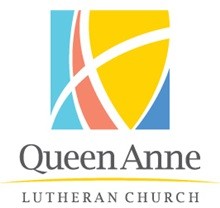Save The Date! September 24 —
Tree Planting for God’s Work, Our Hands
We will participate in the greater ELCA “God’s Work Our Hands” project with a day of service in support of our community. With the organizational assistance of Lisa Kjaer-Schade and in collaboration with the environmental group Forterra, we will partner with Magnolia Lutheran Church and Columbia City’s City of Hope Lutheran Church to plant trees in a Central District or South End community. The event will take place on Saturday September 24. Tools and supplies will be provided.
People who live in neighborhoods with mature trees are incredibly blessed. How many of us have had the pleasure of climbing a tree, swinging from a branch in an innertube, spending a warm summer afternoon reading a book in the shade, or diving into a pile of gold, orange, and red autumn leaves?
Not only are trees beautiful, but they also keep our neighborhoods healthier.
- Trees reduce air pollution by absorbing carbon dioxide and producing oxygen. And a mature tree (50 years) sequesters 3 times as much carbon as a young tree.
- Trees keep hot summer days cooler. In 2015, the EPA reported that trees can lower ambient temperatures of urban heat islands by 20–45°F. Poorer neighborhoods can be as much as 15 degrees hotter than wealthier neighborhoods – in part due to lack of tree canopy and green spaces and relatedly because of increased population density (apartment buildings vs. single family homes with yards). This heat can result in dehydration, heat stroke and death.
- Increasing a city’s urban tree canopy can reduce childhood asthma, improve social ties among neighbors, reduce crime, and increase worker productivity while decreasing absenteeism.
A 2013 study of Seattle’s Duwamish Valley by a group including the UW School of Public Health and the EPA showed that Georgetown and South Park residents had a significantly lower life expectancy (73.3 years) than residents of Laurelhurst (86.4 years). The study also computed Seattle health measurements that showed the highest score (lowest health) for Beacon Hill/Georgetown/South Park at 106, compared to a score of 13 for Magnolia. Of course, there are many factors that contribute to life expectancy and healthiness of a neighborhood. But Beacon Hill/Georgetown/South Park’s tree canopy and park area score was among the lowest in Seattle.
As global warming increases, maintaining the trees we have and planting more trees will be crucial in preserving our environment. You can help by being a part of QALC’s Social Action/Environmental Task Force tree planting day on Saturday, September 24. Stay tuned for more details over the summer!

